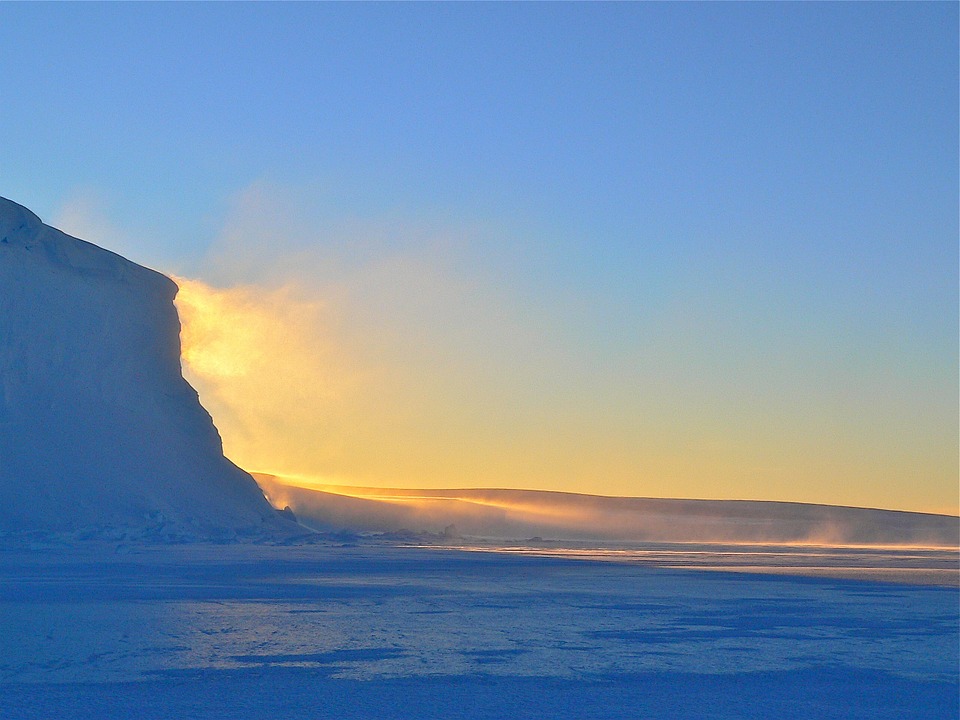Climate change is an issue that many are bringing to light and urging influential figures to make a change in the process, with activists like Greta Thunberg headlining the movement. Looking back at the cause of an extreme rise in sea levels thousands of years ago, scientists are warning that it could happen again.
Due to human activity over recent years, climate change is becoming more and more evident. This leads to the melting or thawing of ice caps in the polar regions of the planet. Scientists have found that should the West Antarctic ice sheet melt, then the sea levels would rise by up to three meters. The West Antarctic ice sheet also happens to be the largest ice repository in the world, and thus an indication of it melting away is a big concern. Through some analysis of the region, researchers have found that an incident such as what they warned about has happened before.
Around 129,000 years ago, known as the last interglacial period, the temperatures in the Arctic region went up by two degrees Celsius. Due to the shift in temperatures, the ice sheet at the time melted away, which resulted in sea levels rising by three meters. With this in mind, it is possible that history may repeat itself in this sense. Earth has already seen a rise in temperatures by one degree, unlike the pre-industrial levels that played a part in the ice caps melting.
The world is already feeling the effects of climate change, especially with the rising sea levels. Express reports that the sea levels in the United States have risen. This could spell trouble for coastal cities such as New York. According to a report from William & Mary’s Virginia Institute of Marine Sciences or VIMS, 27 tidal stations out of 32 have seen an increase in sea levels in 2019 alone. 25 of those 27 tidal stations have seen a drastic rise in sea levels, more than ever since 1992, and only five of the tidal stations have seen a drop in sea levels.
VIMS marine scientist Molly Mitchell stated that despite the slow rise in sea levels at the West Coast, it is predicted that the sea levels will rise at a faster rate.



 FDA Lifts REMS Requirement for CAR-T Cell Cancer Therapies
FDA Lifts REMS Requirement for CAR-T Cell Cancer Therapies  NASA Cuts Boeing Starliner Missions as SpaceX Pulls Ahead
NASA Cuts Boeing Starliner Missions as SpaceX Pulls Ahead  Neuralink Plans High-Volume Brain Implant Production and Fully Automated Surgery by 2026
Neuralink Plans High-Volume Brain Implant Production and Fully Automated Surgery by 2026  SpaceX Pivots Toward Moon City as Musk Reframes Long-Term Space Vision
SpaceX Pivots Toward Moon City as Musk Reframes Long-Term Space Vision  Is space worth the cost? Accounting experts say its value can’t be found in spreadsheets
Is space worth the cost? Accounting experts say its value can’t be found in spreadsheets  Blue Origin’s New Glenn Achieves Breakthrough Success With First NASA Mission
Blue Origin’s New Glenn Achieves Breakthrough Success With First NASA Mission  Trump and Merck KGaA Partner to Slash IVF Drug Costs and Expand Fertility Coverage
Trump and Merck KGaA Partner to Slash IVF Drug Costs and Expand Fertility Coverage  NASA Astronauts Wilmore and Williams Recover After Boeing Starliner Delay
NASA Astronauts Wilmore and Williams Recover After Boeing Starliner Delay  SpaceX’s Starship Completes 11th Test Flight, Paving Way for Moon and Mars Missions
SpaceX’s Starship Completes 11th Test Flight, Paving Way for Moon and Mars Missions 































